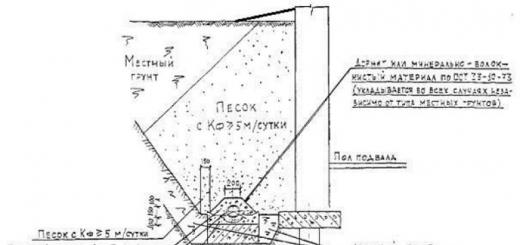The Volgo-Vyatka bank of Sberbank provides services in 3 regions - Nizhny Novgorod, Vladimir and Kirov, and 4 republics - Mordovia, Mari El, Chuvashia and Tatarstan. In order to send funds to an organization registered in the cities of the specified constituent entities of the Russian Federation, or to a person permanently residing there, it is necessary to indicate in the payment order the number of his account and the details of the Volgo-Vyatka Bank of Sberbank PJSC.
Information about the Volga-Vyatka branch of PJSC Sberbank of Russia
For the entire Sberbank network, only the TIN and KPP will be the same, and it is recommended to clarify the rest of the data in a timely manner.
Use of details
To transfer funds to a card, savings book individual or the company's current account, it is necessary to indicate the financial "address" of the recipient - his "purse" in the Sberbank system. It is not enough to indicate only the number of the card or current account - the bank-recipient of the transfer must be clearly identified in the payment order.
If the client makes a mistake with the number in any bank details, then the funds may go to another bank to the card account of an outsider or a bank account of a foreign organization.
If there is no such account in the erroneously indicated bank, then the funds will be returned to the sender - however, with the withdrawal of the commission for the transfer. In addition, sending money to erroneously specified details is fraught with payment delays and the need for the operator to manually make adjustments to payment order.
Details of the branch of Sberbank in Nizhny Novgorod
The main details of Volgo-Vyatsky Bank PJSC Sberbank include:
- The beneficiary's current account is a 20-digit unique number assigned to each client of the bank. The account of an individual begins with the numbers 408, a legal entity - 420, 421, 422.
- A correspondent account is an account with which a division of Sberbank carries out, in fact, its own calculations. Each branch has its own account, for banks of the Sberbank group it starts with 301, in this case, correspondent account 30101810900000000603.
- BIC is a key prop. The client may not know other details, but the BIC will have to be indicated in the payment in any case, since the order will not be processed without the BIC. For the Volga-Vyatka Bank, this is 042202603.
- KPP - registration code, it is assigned to all banking structure at the time of formation or after reorganization. In Sberbank, the checkpoint was changed in 2015 after the open joint-stock company Sberbank became a public joint-stock company. Now checkpoint of Sberbank 526002001.
- TIN - assigned once when forming a legal entity, TIN of Sberbank 7707083893.
- OKPO - the code is needed for legal entities, OKPO Volga-Vyatka branch of Sberbank 09116916.
- SWIFT - this code is used for international transfers. The code of the required division. Sometimes among the details it is required to indicate the legal and actual address of the bank.

For branches of Sberbank, the legal address is the head office address, which is located in Moscow, on Vavilov Street, 19. And the actual (aka postal) address of the branches is determined by the regional affiliation of the bank.
How to find out the current details of the Nizhny Novgorod branch
To get information about the details of the Volgo-Vyatka Bank of PJSC Sberbank, you can go in several ways:
- Call Sberbank at hotline or to the branch itself in Nizhny Novgorod by calling 8-831-417-98-08. It is most convenient to ask for details by fax or e-mail, but you can write down dictation.
- Contact the nearest branch in Nizhny Novgorod and ask to print the details there. If you need official paper, for example, you need to hand over this information to tax service, then this is the only way to get the details.
- Search on the Internet.
An Internet search is fraught with the fact that the details may change in PJSC Sberbank Nizhny Novgorod. Therefore, it is necessary to look for information in official sources.
For example, on the Sberbank website. For this you need:
- go to the bank's website;
- select the one you want from the top menu locality(in this case, the city is Nizhny Novgorod);
- go to the section Information about the bank;
- then in the side menu go sequentially Regional network - Details of the territorial bank.

Conclusion
Having received necessary details, you can make payments without fear that the funds will be lost or delayed in transit. Volgo-Vyatka Bank of PJSC Sberbank provides details after contacting the bank or on the official Internet source. By the way, on the same page you can find the details of all the territorial divisions of the branch.
Volgo-Vyatsky Bank of Sberbank PJSC is one of the territorial banks of Sberbank PJSC, established on January 1, 2001 by merging Nizhny Novgorod, Kirov, Vladimir, Bank Tatarstan, Mari El Bank, Mordovian Bank of Sberbank of Russia.
In 2017-2018, Volgo-Vyatsky Bank and Zapadno-Uralsky Bank merged. The Volgo-Vyatka Bank included the Republic of Udmurtia and the Perm Territory.
Today, Volgo-Vyatsky Bank PJSC Sberbank is the largest and fastest growing bank in the service regions. The Bank has an extensive branch network, which includes about 2,000 branches, which ensures maximum convenience of access to banking services for each client. Volgo-Vyatsky Bank serves clients in nine regions: Nizhny Novgorod, Kirov, Vladimir region, the republics of Tatarstan, Chuvashia, Mordovia, Mari El, Udmurtia and the Perm Territory.
Chronology
1841-November 12 (new style) promulgation of the decree of Emperor Nicholas I of October 30 on the establishment of savings banks in Russia "in order to provide people with insufficient rank for savings in a correct and profitable way."
1842- the first savings banks were opened in Moscow and St. Petersburg.
1848- On January 24, the Minister of Internal Affairs ordered the Nizhny Novgorod Military Governor to open a Savings Bank under the local Order of Public Charity.
1849- opening on April 26 of the Savings Bank in Nizhny Novgorod under the local Order of Public Charity.
1851- as of January 1, the number of depositors of the Nizhny Novgorod Savings Bank was 868 people.
1860- opening of the first savings bank in Kazan
1862- Savings banks were transferred to the jurisdiction of the State Bank of Russia.
1866- opening of the first savings bank in the city of Vyatka (now the city of Kirov).
1886- On May 16, the first savings bank was opened in Cheboksary.
1895- On the initiative of S.Yu. Witte adopted a new Charter of savings banks. Savings banks began to be called "state".
1913- 8005 cash desks operate in the country.
1918- Decree of the Council of People's Commissars of January 21 on the inviolability of deposits in savings banks.
1919- Decree of the Council of People's Commissars of April 10 on the merger of savings banks with the People's Bank of the RSFSR.
1922- Decree of the Council of People's Commissars of December 26 "On the establishment of state savings banks" "in order to provide the working population with the possibility of safe and profitable storage of cash savings and free funds."
1948- On November 20, a new charter of state labor savings banks was approved.
1988- State labor savings banks were transformed into Sberbank of the USSR, as a state specialized bank for the population and legal entities.
1990- July. Decree of the Supreme Council of the RSFSR, by which the former Russian Republican Bank Sberbank of the USSR was declared the property of the RSFSR.
1990- Savings Bank of the RSFSR was transformed into a joint-stock commercial bank.
1991- 22 March. the Joint Stock Commercial Savings Bank was established Russian Federation on the general meeting shareholders.
1991- 20 June. Joint Stock Commercial Savings Bank of the Russian Federation (Sberbank of Russia) is registered in Central Bank RF. Registration number 1481.
year 2001- 1st of January. Creation of the Volga-Vyatka Bank by combining the Nizhny Novgorod, Kirov, Vladimir, " Bank Tatarstan, Mari El Bank, Mordovian Bank of Sberbank of Russia.
The ideology of Sberbank contains excellent principles of work: I am the leader, we are the team, everything is for the client! But here in the Volga-Vyatka Bank they see this one in a much different way. This department never had a team, and no matter how the chairman of the bank tried to organize work in this direction his attempts are in vain. Sitting in his office and rarely in public, he fails to see the full picture of what is happening in his bank. For example, as soon as the directorate of the subdivisions hears that "... Maltsev is going to GEMBA! .." to quickly hide the mess that is happening on the ground in order to voice to the chairman what he needs to hear, namely the problems that already have a prototype decisions… But there has never been a case when the chairman planned the so-called GEMBA in one place, and then abruptly changed his mind and unexpectedly ended up in another. And to complete the picture, he would take away the gadgets of everyone who accompanies him in order to see and understand the real picture of what is really happening ...
And what about the common people? If the chairman, for the sake of interest, went on an experiment, namely: he would take off his elite tuxedo and dress like a simple bank client, and would come for a service at rush hour. I am sure that the pictures "before" and "after" will be completely opposite to each other!
But Sberbank has super people who can fix everything - this is PSS! Oh, these super "smart" people who, according to the management, have "unique qualities" simply cannot distinguish between a process and a sub-process, and draw everything in a bunch in their diagrams, not understanding that processes and sub-processes are slightly different things and it is impossible between them put an equal sign. Now, if you ask the PSSnik about what a process is, only a certain number of people will be able to answer this question, and then if they are given a “google”. And I’m generally silent about the process maps of the upper and lower levels, since they still don’t exist in the final form, and what is described does not fully correspond to reality on the ground ... PSS specialists do not always understand that there is a value chain, but the DMAIC approach comes down to doing a project for the sake of a project…and this is just the tip of the iceberg! I'm afraid to even mention the fact that no one needs all the gadgets that the PSS has. This is work for the sake of work, and for most ordinary employees it sits firmly in the subconscious and it just won’t work to pull it out. To change the thoughts that have firmly settled in the minds of people, you need to seriously try, but this, to put it mildly, is "lost sight".
One can speak as much as one likes about the fact that reality and the intended goal in Sberbank are completely different concepts, but the essence does not change from this ... And if you take my favorite Volga-Vyatka Bank and look into the “souls” of employees, then financial results they achieve by the forces of moral pressure of employees, for the sake of their penultimate indicators in the review competition among territorial banks ... I’m thinking, but none of the TOPs has ever woken up with the thought that maybe it’s time to change stereotypes? Not? Maybe it's time to get out of your elite offices more often and break away from gadgets more often? Yes, a "step towards the people" was made and online dialogues were introduced on internal servers, after which the life of employees who presented the problem turns into hell! After all, only in this department can an employee be humiliated so much that he wrote a letter of resignation of his own free will, just because he tried to express his opinion.
After all, it is only in this bank that employees pour mud on each other in order to get at least a little higher coefficient in the quarterly bonus. After all, only in this bank can a director cover his employee with a foul language if he, the director, was criticized somewhere and thereby he let off his steam. After all, only in this bank, a humanist, having taken a mathematical formula and distorted it to the level of delirium, will beat his chest that there are only 2 opinions: his and the wrong one! After all, only in this bank, the top management looks at ordinary employees as garbage and gets furious if you ask them questions. After all, only here you need to make an anonymous appeal for help only from your own internal accounts, because why do you need anonymity if you are declassified anyway, and you will be an enemy of the people at number 1!
And there are so many such examples that if German Gref really saw them, then his deep emotional shock would probably make him think about what to do next. Yes, and finally German Oskarovich Gref. This is a very smart person and the most quoted banker, but alas, his communication channels go with him in a parallel reality. He either does not read letters, or reads what is acceptable from the point of view of "the safety of his place among the directorate and the leader's entourage." I repeat - the communication channel with German Gref does not work! It seems that in order to turn to the top management of the company with a question for help or simply being in a hopeless situation, since the level of cynicism of local TOPs towards employees sometimes reaches its climax, you need to go to the federal media! But this is nonsense! Moreover, German Oskarovich himself calls on employees to dialogue, with the context: "... write to me, I will definitely answer you! .." Yes ... fresh giving, but hard to believe!
What I want to say in the end, yes, I spoke out, because it is very difficult to keep such a burden in yourself. Described in this article is "just a drop in the ocean." If you really describe what is really happening, then this manuscript in terms of volume and popularity will be able to surpass the novels of JK Rowling, but that's a completely different story ...










